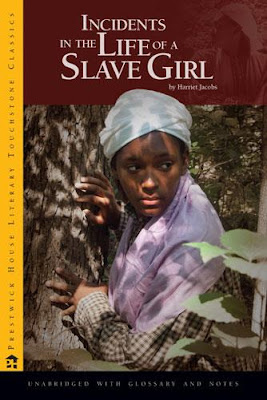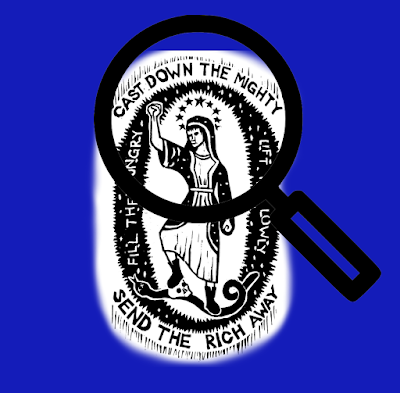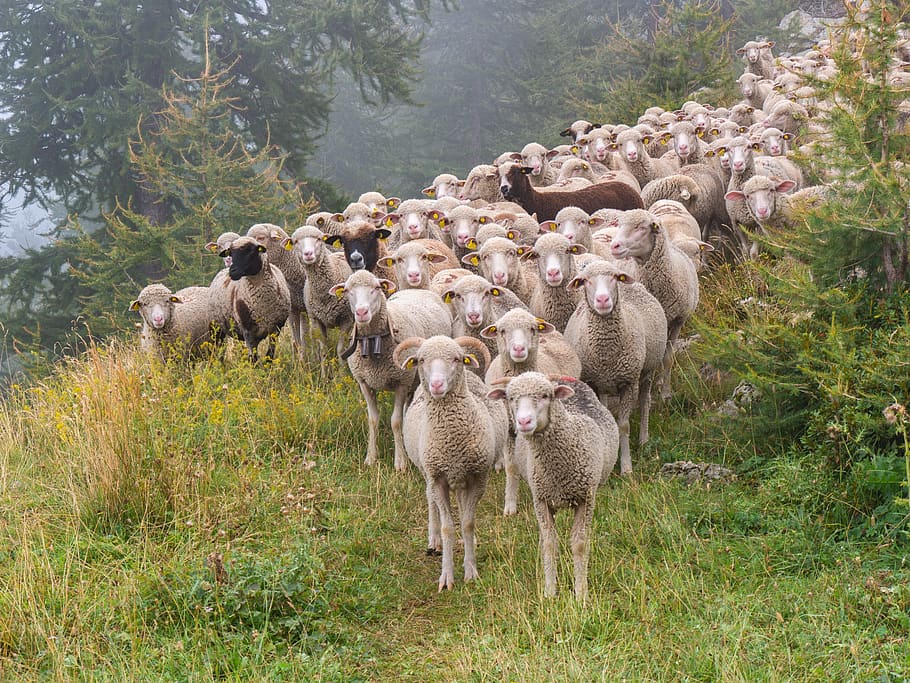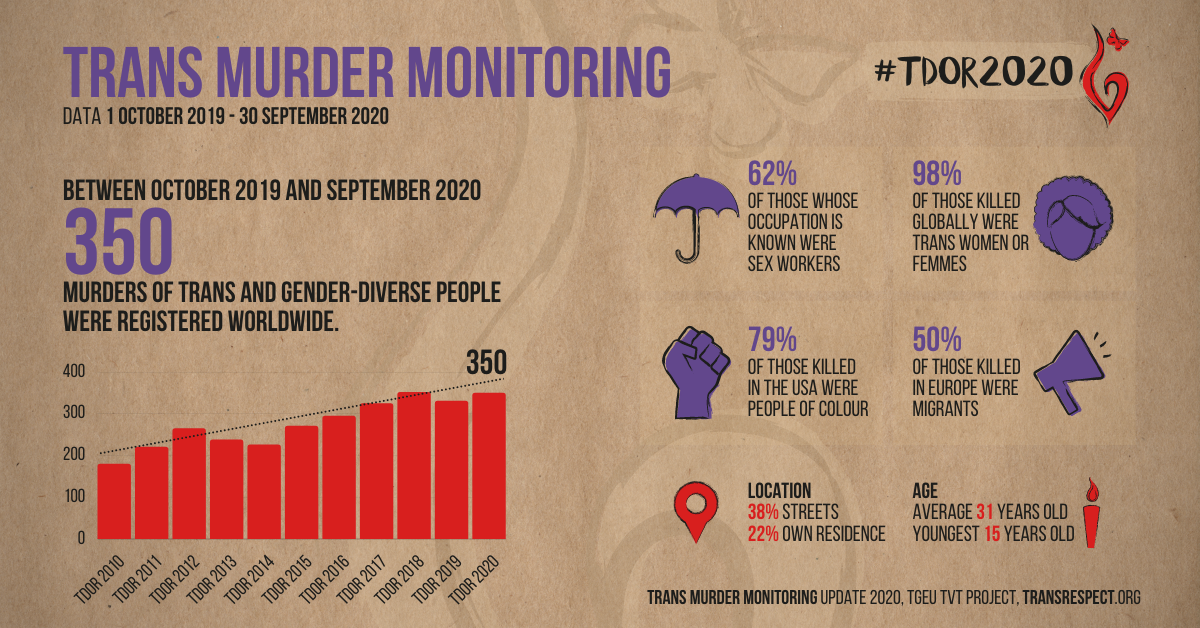Wednesday, May 25, 2022
Queerying Easter 7C
Acts 16:16-34
16One day, as we were going to the place of prayer, we met an enslaved girl who had a spirit of divination and brought her enslavers a great deal of money by fortune-telling. 17While she followed Paul and us, she would cry out, “These men are slaves of the Most High God, who proclaim to you a way of salvation.” 18She kept doing this for many days.
But Paul, very much annoyed, turned and said to the spirit, “I order you in the name of Jesus Christ to come out of her.” And it came out that very hour.
19But when her owners saw that their hope of making money was gone, they seized Paul and Silas and dragged them into the marketplace before the authorities. 20When they had brought them before the officers, they said, “These men are disturbing our city; they are Jewish 21and are advocating customs that are not lawful for us as Romans to adopt or observe.” 22The crowd joined in attacking them, and the officers had them stripped of their clothing and ordered them to be beaten with rods. 23After they had given them a severe flogging, they threw them into prison and ordered the jailer to keep them securely. 24Following these instructions, he put them in the innermost cell and fastened their feet in the stocks.
25About midnight Paul and Silas were holding vigil, praying and singing hymns to God, and the prisoners were listening to them.
26Suddenly there was an earthquake, so violent that the foundations of the prison were shaken; and immediately all the doors were opened and everyone’s chains were unfastened.
27When the jailer woke up and saw the prison doors wide open, he drew his sword and was about to kill himself, since he assumed that the prisoners had escaped.
28But Paul shouted in a loud voice, “Do not harm yourself, for we are all here.”
29The jailer called for lights, and rushing in, he fell down trembling before Paul and Silas. 30Then he brought them outside and said, “Sirs, what must I do to be saved?”
31They answered, “Believe on the Lover Jesus, and you will be saved, you and your household.” 32They spoke the word of the Lover to him and to all who were in his house. 33At the same hour of the night he took them and washed their wounds; then he and his entire family were baptized without delay. 34The jailer brought them up into the house and set food before them; and he and his entire household rejoiced that he had become a believer in God.
Queeries for the text:
Where are they?
[When] do owners work?
Why was Paul annoyed at truth-telling?
What happened to the girl after this?
How does faith disturb empire?
Who else did Roman authorities flog?
What happens when jailed?
How do we keep vigil?
What happens when incarceration is unnecessary?
When despairing, what can we do besides un-aliving ourselves?
What do jailers need saving from?
Which word of the Lover did they speak?
How does faith humanize? How does faith dehumanize?
-----
J. Pace Warfield-May queeries the reading from Revelation.
Revelation 22:12-14, 16-17, 20-21
“Holy shit, y’all: I am coming soon and my reward is with me, to give the reward away according to everyone’s work. 13I am the A and the Z, the Alpha and the Omega, the First and the Last, the Beginning and the End.”
14Blessed are those who wash their robes, so that they will have the right to the tree of life and may enter the city by the gates.
16“It’s me, Jesus, who has sent my angel to testify to y’all these things in the churches. I am the source and the descendent of David, the radiant morning star.
17The Spirit and her fiancé say, “Come,”
And let everyone who hears say, “Come,”
And let everyone who is parched come.
Let anyone who wishes to take the water of life have free and unlimited access.
20The one who testifies to these things say, “Surely I am coming soon.” Truly– Come, Lover Jesus. 21The grace of our Lover, Jesus the Anointed One, be with all those who have been set apart, the holy. Amen.
Queeries for the text:
What is missing from this text?
What is the importance of a morning star?
Why are those who wash their robes blessed?
What does it mean to testify?
Who is the Spirit’s fiancé?
What are your queeries?
Wednesday, December 15, 2021
Queerying Advent 4C
Gospel: Luke 1:39-45[46-55]
39In those days Mary set out and went with haste to a Judean town in the hill country, 40where she entered the house of Zechariah and greeted Elizabeth.
41When Elizabeth heard Mary’s greeting, the child leaped in her uterus. And Elizabeth was filled with the Holy Spirit 42and exclaimed with a loud cry, “Blessed are you among those who create life, and blessed is the fruit of your creating. 43And why has this happened to me, that the mother of my Leader comes to me? 44For as soon as I heard the sound of your greeting, the child in my womb leaped for joy. 45And blessed is she who believed that there would be a fulfillment of what was spoken to her by Becoming One.”
[46And Mary said, “My soul magnifies the Becoming One, 47and my spirit rejoices in God my Savior, 48for She has looked with favor on the lowliness of Her servant. Surely, from now on all generations will call me blessed; 49for the Mighty One has done great things for me, and holy is Her name. 50God's mercy is for those who fear Her from generation to generation. 51She has shown strength with Her arm; She has scattered the proud in the thoughts of their hearts. 52She has brought down the powerful from their thrones, and lifted up the lowly; 53She has filled the hungry with good things, and sent the rich away empty. 54She has helped Her servant Israel, in remembrance of Her mercy, 55according to the promise She made to our ancestors, to Hagar, Sarah, and Abraham and to their descendants forever.”]
Queeries for the text:
In which days?
How often does a fetus leap in utero?
How does that blessing continue?
Which child is which?
What is God's favor like?
Who receives mercy?
What scatters the arrogant?
Whose thrones need brought down?
Who is filled? Who is hungry?
What promise to the descendants?
What are your queeries?
Wednesday, November 18, 2020
Queerying Reign of Christ A
River Needham M.A., queeries the Tanakh reading.
Tanakh: Ezekiel 34:11-16, 20-24
Then, the Becoming God said: Here am I! I am going to think about my flock, and go find them.
As a shepherd seeks out her flock when some have gotten lost, so I will seek out my flock, I will rescue them from all the places to which they were scattered during the cloudy and gloomy day. I will take them out from the peoples and gather them from the nations, and I will bring them to their own land, and will pasture them on the mountains of Israel, by the watercourses and in all the settled portions of the land. I will feed them in good grazing land, and the lofty hills of Israel shall be their pasture. There, in the hills of Israel, they shall lie down in a good pasture and shall feed on rich grazing land. I Myself will graze My flock, and I Myself will let them lie down—declares the Becoming God. I will look for the lost, and I will bring back the strayed; I will bandage the injured, and I will sustain the weak;and the fat and healthy ones I will destroy. I will tend them rightly.
[...]
Assuredly, thus said the Becoming God to them: Here am I, I am going to decide between the fat animals and the lean. Because you pushed with your whole being against the weaker ones and butted them with your horns until you scattered them abroad, I will rescue My flock and they shall no longer be a reward. I will decide between one animal and another. Then I will appoint a single shepherd over them to tend them—My servant David. He shall tend them, he shall be a shepherd to them. I the Becoming One will be their God, and My servant David shall be a ruler among them—I the Becoming One have spoken.
Queeries for the text:Who is the Becoming God?
Where are the flocks? What are the flocks of?
What lies are we told about being fat? How can they be remedied?
How will David be the ruler of the people? When will this happen?
-----
Rev. Emily E. Ewing queeries the Gospel reading.
Gospel: Matthew 25:31-46
Jesus said:
31 ‘When the Human One comes in Their glory, and all the angels with Them, then They will sit on the throne of Their glory.
32All the nations will be gathered before Them, and They will separate people one from another as a shepherd
separates the sheep from the goats,
33and the Human One will put the sheep at Their right hand and the goats at the left.
34Then the ruler will say to those at Their
right hand, “Come, you that are blessed by my Father, inherit the dominion prepared for you from the foundation of the world;
35for I was hungry and you gave me food, I was thirsty and you gave me something to drink, I was a stranger and you welcomed me,
36I was naked and you gave me clothing, I was sick and you took care of me, I was in prison and you visited me.”
37Then the righteous will answer Them, “Liege, when was it that we saw you hungry and gave you food, or thirsty and gave you something to drink? 38And when was it that we saw you a stranger and welcomed you, or naked and gave you clothing? 39And when was it that we saw you sick or in prison and visited you?”
40And the ruler will answer them, “Truly I tell you, just as you did it to one of the least of these who are members of my family, you did it to me.”
41Then They will say to those at Their left hand, “You that are accursed, depart from me into the everlasting fire prepared for the devil and his angels; 42for I was hungry and you gave me no food, I was thirsty and you gave me nothing to drink, 43I was a stranger and you did not welcome me, naked and you did not give me clothing, sick and in prison and you did not visit me.”
44Then they also will answer, “Liege, when was it that we saw you hungry or thirsty or a stranger or naked or sick or in prison, and did not take care of you?”
45Then They will answer them, “Truly I tell you, just as you did not do it to one of the least of these, you did not do it to me.” 46And these will go away into everlasting punishment, but the righteous into everlasting life.’
Queeries for the text:
What kind of ruler is this? Who might rule like this?
Why are sheep the preferred animal over goats?
What does it mean to be thirsty?
How many visits to Black, Indigenous, People of Color in prison will make you question the prison industrial complex?
How many people will you give food, water, and shelter to until you question the capitalist system of requisite poverty?
What are your queeries?
Thursday, June 18, 2020
Queerying 3rd after Pentecost A
Sarah saw the son whom Hagar the Egyptian had borne to Abraham playing.
She said to Abraham, “Cast out that slave-woman and her son, for the son of that slave shall not share in the inheritance with my son Isaac.”
The matter distressed Abraham greatly, for it concerned a son of his.
But God said to Abraham, “Do not be distressed over the boy or your slave; whatever Sarah tells you, do as she says, for it is through Isaac that offspring shall be continued for you.
As for the son of the slave-woman, I will make a nation of him, too, for he is your seed.”
Early next morning Abraham took some bread and a skin of water, and gave them to Hagar. He placed them over her shoulder, together with the child, and sent her away. And she wandered about in the wilderness of Beer-sheba.
When the water was gone from the skin, she left the child under one of the bushes,
and went and sat down at a distance, a bowshot away; for she thought, “Let me not look on as the child dies.” And sitting thus afar, she burst into tears.
God heard the cry of the boy, and an angel of God called to Hagar from heaven and said to her, “What troubles you, Hagar? Fear not, for God has heeded the cry of the boy where he is.
Come, lift up the boy and hold him by the hand, for I will make a great nation of him.”
Then God opened her eyes and she saw a well of water. She went and filled the skin with water, and let the boy drink.
God was with the boy and he grew up; he dwelt in the wilderness and became a bowman.
He lived in the wilderness of Paran; and his mother got a wife for him from the land of Egypt.
[Note: These questions are pointedly toward white people.]
Tuesday, October 15, 2019
Queerying 19th after Pentecost C
Tanakh: Jeremiah 31:27-34
See, a time is coming—declares the Becoming One—when I will sow the House of Israel and the House of Judah with seed of humans and seed of cattle; and just as I was watchful over them to uproot and to pull down, to overthrow and to destroy and to bring disaster, so I will be watchful over them to build and to plant—declares the Becoming One. In those days, they shall no longer say, “Parents have eaten sour grapes and children’s teeth are blunted.” But every one shall die for their own sins: whoever eats sour grapes, his teeth shall be blunted. See, a time is coming—declares the Becoming One—when I will make a new covenant with the House of Israel and the House of Judah. It will not be like the covenant I made with their ancestors, when I took them by the hand to lead them out of the land of Egypt, a covenant which they broke, though I espoused them—declares the Becoming One. But such is the covenant I will make with the House of Israel after these days—declares the Becoming One: I will put my teaching into their inmost being and inscribe it upon their hearts. Then I will be their God, and they shall be my people. No longer will they need to teach one another and say to one another, “Heed the Becoming One”; for all of them, from the least of them to the greatest, shall heed Me—declares the Becoming One. For I will forgive their iniquities, and remember their sins no more.
Queeries for the text:
Who is the House of Israel?
Are humans and cows planted?
What are sour grapes?
How are teeth blunted?
How might we have our hearts inscribed?
How do we do the work of forgiveness?
Does God forget when ze forgives?
-----
Rev. Emily E. Ewing queeries the Gospel reading.
Gospel: Luke 18:1-8
Then Jesus told the disciples a parable about their need to pray always and not to lose heart. 2Jesus said, “In a certain city there was a judge who neither feared God nor had respect for people. 3In that city there was a widow who kept coming to the judge and saying, ‘Grant me justice against my opponent.’
4For a while the judge refused; but later said to zirself, ‘Though I have no fear of God and no respect for anyone, 5yet because this widow keeps bothering me, I will grant her justice, so that she may not wear me out by continually coming.’”
6And the Powerful One said, “Listen to what the unjust judge says. 7And will not God grant justice to Faer chosen ones who cry to Fae day and night? Will Fae delay long in helping them? 8I tell you, Fae will quickly grant justice to them. And yet, when the Human One comes, will Ze find faith on earth?”
Queeries for the text:
What did we skip?
What kind of judge are we talking about?
What if the widow had not been just in her request?
How do we wear out the unjust?
Who is more God-like: the widow or the judge?
Where does the after explanation come from?
What does it take for the widow to get justice?
What are your queeries?
Thursday, October 3, 2019
Queerying 17th after Pentecost C
Tanakh: Lamentations 1:1-5
Alas! Lonely sits the city that was once great with people! She that was great among nations has become like a widow. The princess among states has become a thrall. Bitterly she weeps in the night, her cheek wet with tears. There is none to comfort her of all her friends. All her allies have betrayed her; they have become her foes. Judah has gone into exile because of misery and harsh oppression; When she settled among the nations, she found no rest; all her pursuers overtook her in the narrow places. Zion's roads are in mourning, empty of festival pilgrims; all her gates are deserted. Her priests sigh, her maidens are unhappy—she is utterly disconsolate! Her enemies are now the masters, her foes are at ease, because the Becoming One has afflicted her for her many transgressions; her infants have gone into captivity before the enemy.
What cities were once great with people?
Who weeps bitterly in the night? Why?
Who has been betrayed?
Who is in exile?
Where are there roads in mourning?
Where are the gates deserted?
Who is disconsolate?
-----
Rev. Emily E. Ewing queeries the Gospel reading.
Gospel: Luke 17:5-10
5The apostles said to the Powerful One, “Increase our faith!”
6The Powerful One replied, “If you had faith the size of a mustard seed, you could say to this mulberry tree, ‘Be uprooted and planted in the sea,’ and it would obey you.
7“Who among you would say to your slave who has just come in from plowing or tending sheep in the field, ‘Come here at once and take your place at the table’? 8Would you not rather say to him, ‘Prepare supper for me, put on your apron and serve me while I eat and drink; later you may eat and drink’? 9Do you thank the slave for doing what was commanded? 10So you also, when you have done all that you were ordered to do, say, ‘We are worthless slaves; we have done only what we ought to have done!’”
Queeries for the text:
What did we skip? Why might that be?
How does someone go about increasing someone else's faith?
What does Jesus' question imply about slavery?
(How) is slavery (in)compatible with following Jesus?
What sort of environment do mulberry trees need to grow?
Who among us has slaves?
Who does and who doesn't get a place at the table?
What are your queeries?
Wednesday, September 25, 2019
Queerying 16th after Pentecost C
Tanakh: Jeremiah 32:1-3a, 6-15
The word which came to Jeremiah from the Becoming One in the tenth year of King Zedekiah of Judah, which was the eighteenth year of Nebuchadrezzar. At that time the army of the king of Babylon was besieging Jerusalem, and the prophet Jeremiah was confined in the prison compound attached to the palace of the king of Judah. For King Zedekiah of Judah had confined him,
------
Jeremiah said: The word of the Becoming One came to me:
Queeries for the text:
What is missing from this reading?
When did this happen? What did the world look like?
Who is confined?
Where is Anathoth?
When can prisoners buy and sell today?
How long do earthen jars last?
When were houses, fields and vineyards again purchased in the land? Who remained in the land?
-----
Rev. Emily E. Ewing queeries the Gospel reading.
Gospel: Luke 16:19-31
Jesus said:
19“There was a rich man who was dressed in purple and fine linen and who feasted sumptuously every day. 20And at his gate lay a poor man named Lazarus, covered with sores, 21who longed to satisfy his hunger with what fell from the rich man’s table; even the dogs would come and lick his sores.
22The poor man died and was carried away by the angels to be with Abraham. The rich man also died and was buried. 23In Hades, where he was being tormented, he looked up and saw Abraham far away with Lazarus by his side.
24He called out, ‘Father Abraham, have mercy on me, and send Lazarus to dip the tip of his finger in water and cool my tongue; for I am in agony in these flames.’
25But Abraham said, ‘Child, remember that during your lifetime you received your good things, and Lazarus in like manner evil things; but now he is comforted here, and you are in agony. 26Besides all this, between you and us a great chasm has been fixed, so that those who might want to pass from here to you cannot do so, and no one can cross from there to us.’
27He said, ‘Then, father, I beg you to send him to my father’s house— 28for I have five brothers—that he may warn them, so that they will not also come into this place of torment.’
29Abraham replied, ‘They have Moses and the prophets; they should listen to them.’
30He said, ‘No, father Abraham; but if someone goes to them from the dead, they will repent.’
31He said to him, ‘If they do not listen to Moses and the prophets, neither will they be convinced even if someone rises from the dead.’”
Queeries for the text:
What did we skip? Why?
What is with Jesus and all the rich folks?!
What's so great about purple?
What does the name Lazarus mean? Why is the name important?
What impact do dogs have?
Why does the rich man still think he can get what he wants?
Is the after life zero-sum?
What will it take for true repentance from evil?
What are your queeries?
Tuesday, June 25, 2019
Queerying 3rd after Pentecost C
Periodic queerier, River Needham, queeries the Tanakh reading.
Tanakh: 2 Kings 2:1-2, 3-5, 6-14
When the Becoming One was about to take Elijah up to heaven in a whirlwind,
Elijah and Elisha had set out from Gilgal.
Elijah said to Elisha, “Stay here, for the Becoming One has sent me on to Bethel.”
“As the Becoming One lives and as you live,” said Elisha, “I will not leave you.”
So they went down to Bethel.
Disciples of the prophets at Bethel came out to Elisha and said to him, “Do you know that the Becoming One will take your master away from you today?”
Elisha replied, “I know it, too; be silent.”
Then Elijah said to him, “Elisha, stay here, for the Becoming One has sent me on to Jericho.”
“As the Becoming One lives and as you live,” said Elisha, “I will not leave you.”
So they went on to Jericho. The disciples of the prophets who were at Jericho came over to Elisha and said to him, “Do you know that the Becoming One will take your master away from you today?”
He replied, “I know it, too; be silent.”
Elijah said to him, “Stay here, for the Becoming One has sent me on to the Jordan.”
“As the Becoming One lives and as you live, I will not leave you,” he said, and the two of them went on.
Fifty men of the disciples of the prophets followed and stood by at a distance from them as the two of them stopped at the Jordan. Thereupon Elijah took his mantle and, rolling it up, he struck the water; it divided to the right and left, so that the two of them crossed over on dry land. As they were crossing, Elijah said to Elisha, “Tell me, what can I do for you before I am taken from you?”
Elisha answered, “Let a double portion of your spirit pass on to me.”
“You have asked a difficult thing,” he said. “If you see me as I am being taken from you, this will be granted to you; if not, it will not.”
As they kept on walking and talking, a fiery chariot with fiery horses suddenly appeared and separated one from the other; and Elijah went up to heaven in a whirlwind. Elisha saw it, and he cried out, “Oh, father, father! Israel’s chariots and horsemen!” When he could no longer see him, he grasped his garments and rent them in two. He picked up Elijah’s mantle, which had dropped from him; and he went back and stood on the bank of the Jordan. Taking the mantle which had dropped from Elijah, he struck the water and said, “Where is the Becoming One, the God of Elijah?” As he too struck the water, it parted to the right and to the left, and Elisha crossed over.
Queeries for the text:
Which other stories is this reminiscent of?
Does God play hide and seek?
Why is the trip from Bethel to Jericho omitted from the pericope?
How does God speak in this passage? What does God look like?
What is a mantle?
Is God's existence dependent on each person? How is Elisha's experience of God different from Elijah's? What are the theological implications?
Who could the false prophets be today?
Where else do prophets strike water?
-----
Rev. Emily E. Ewing queeries the Gospel reading.
Luke 9:51-62
51When the days drew near for Jesus to be taken up,
52And he sent messengers ahead of him.
57As they were going along the road,
Queeries for the text:
How do you set your face?
Which messengers did Jesus send?
Why do James and John want to command terrible weather?
Why are we so inclined towards increased vengeance?
Did the "someone" know what they were proposing?
What is it like for Jesus to be without home
How does Jesus feel about family?
What happens when you look back while plowing? What if you want to plow in a curve?
What are your queeries?
Wednesday, May 29, 2019
Queerying Easter 7C
Rev. Emily E. Ewing queeries the Acts reading.
Acts 16:16-34
16One day, as we were going to the place of prayer,
19But when her owners saw that their hope of making money was gone,
and dragged them into the marketplace before the authorities.
and ordered them to be beaten with rods.
and ordered the jailer to keep them securely.
and fastened their feet in the stocks.
25About midnight Paul and Silas were praying and singing hymns to God,
26Suddenly there was an earthquake,
and everyone’s chains were unfastened.
and saw the prison doors wide open,
and rushing in,
and you will be saved,
and set food before them;
Queeries for the text:
Which place of prayer? Where?
Why is telling the truth annoying to Paul? What does the girl who is enslaved feel?
How do we profit off of slavery?
What agency does the girl who was enslaved have? What happens to her when she is no longer "useful"?
Which customs were unlawful for Romans?
What happened to a fair trial?
Who else sings and prays in prison?
How do you believe "on" something or someone?
Did the others in the household also become believers? Does it matter?
What ever happened to the girl?
What are your queeries?
Tuesday, April 23, 2019
Queerying Easter 2C
The Gospel reading, also queeried last year, can be found at this link.
Rev. Emily E. Ewing queeries the Acts reading.
Acts 5:27-32
27When the captain and temple police had brought the apostles,
and forgiveness of sins.
Queeries for the text:
How and from where had they brought the apostles?
What strict orders do religious leaders give today?
Whose blood is on us?
Where is Peter at in the stages of moral development?
How can we navigate human and divine authority?
Why does it matter that Jesus was hanged on a tree?
Who are our ancestors?
What does it mean to obey God in the context of this story?
What are your queeries?
Tuesday, January 22, 2019
Queerying 3rd after Epiphany - year C
Tanakh: Nehemiah 8:1-3, 5-6, 8-10 (8:1-10 printed, omitted portions in italics)
The entire people assembled as one human in the square before the Water Gate,
Queeries for the text:
What is the Water Gate? What other elements are important?
What was the Teaching of Moses?
Who are butches and femmes?
What is understanding?
How can you learn without ears?
How can you see without eyes?
Why were verses 4 and 7 omitted from this lesson?
Why was mourning prohibited?
Where else are choice foods mentioned?
What was Moses's teaching before Nehemiah read this?
-----
Rev. Emily E. Ewing queeries the reading from the Gospel.
Gospel: Luke 4:14-21
14Then Jesus,
16When Jesus came to Nazareth,
20And Jesus rolled up the scroll,
Queeries for the text:
Where was Jesus returning from?
What does Luke mean by "everyone"?
Did Jesus choose which Sabbath on purpose? Did Jesus change the expected reading?
What is good news to the poor?
What is release to the captives?
Do the blind want recovery of sight?
What is freedom for the oppressed?
What is the year of God's favor?
Does Jesus practice street theater of the oppressed?
How has this scripture been fulfilled?
What are your queeries?
Sunday, January 6, 2019
Queerying Baptism of Jesus year C
Periodic queerier, River Needham, queeries the reading from the Tanakh.
Tanakh: Isaiah 43:1-7
But now thus said the Becoming One — who created you, O Jacob, who formed you, O Israel:
All who are linked to my name, whom I have created, formed, and made for my glory.
Queeries for the Text:
Who created Israel and Judah?
What are the fires and streams of today?
Where else does God offer ransoms?
Are some people worth less in God's eyes?
Where else does "I am with you" function as words of comfort? As challenge?
What is the significance of the four directions?
What does it mean to be created, formed and made for God's glory?
-----
Rev. Emily E. Ewing queeries the reading from the Gospel.
Gospel: Luke 3:15-17, 21-22
15As the people were filled with expectation,
21Now when all the people were baptized,
Queeries for the text:
What's missing? Why is it missing? Who else is shut up in prison?
Why does the first half sound so familiar?
Does John know he's referring to Jesus? How does John know how powerful Jesus is?
Who baptizes Jesus in this gospel?
What was Jesus' prayer after being baptized?
What did Jesus do to earn God's love and praise?
What is it like for a dove to descend?
What does God's voice sound like?
Did anything special happen during Jesus' baptism?
What do the heavens look like when they open?
What are your queeries?
Tuesday, December 4, 2018
Queerying Advent 2 Year C
Today's text from the Tanakh was queeried by periodic queerier River Needham.
Tanakh - Malachi 3:1-4
Behold, I am sending my messenger to clear the way before me, and the ruler whom you seek shall come to faer Temple suddenly. As for the angel of the covenant that you desire, they are already coming. But who can endure the day of faer coming, and who can hold out when fae appears? For fae is like a smelter’s fire and like fuller’s lye. Fae shall act like a smelter and purger of silver; and fae shall purify the descendants of Levi and refine them like gold and silver, so that they shall present offerings in righteousness. Then the offerings of Judah and Jerusalem shall be pleasing to the Becoming One as in the days of yore and in the years of old.
Queeries for the text:
Who is the ruler this text seeks?
What is an angel of the covenant?
What covenant? Who desires it?
Where else is silver in the Minor Prophets?
Why just Levi's descendants?
Why are Judah and Jerusalem placed in opposition?
Why is it important to separate Jesus from this text?
-----
Today's special guest queery of Philippians is brought to you by Katy Wallace with collaboration from Rev. Emily Ewing.
Philippians 1:3-11
3I thank my God every time I remember you, 4constantly praying with joy in every one of my prayers for all of you, 5because of your sharing in the gospel from the first day until now. 6I am confident of this, that the one who began a good work among you will bring it to completion by the day of Jesus Christ.
7It is right for me to think this way about all of you, because you hold me in your heart, for all of you share in God’s grace with me, both in my imprisonment and in the defense and confirmation of the gospel. 8For God is my witness, how I long for all of you with the compassion of Christ Jesus.
9And this is my prayer, that your love may overflow more and more with knowledge and full insight 10to help you to determine what is best, so that in the day of Christ you may be pure and blameless, 11having produced the harvest of righteousness that comes through Jesus Christ for the glory and praise of God.
Queeries for the text:
What does sharing in the gospel look like?
What is the good work brought to completion and who began it?
How does imprisonment impact grace?
What is God witnessing in Paul's longing? What does God witness in us?
How does God's compassion show up throughout the bible?
What does it mean to share in the defense and confirmation of the gospel? How does it relate to love and longing?
How does love overflow with knowledge?
What does it mean to be pure and blameless?
What does a harvest of righteousness look like?
-----
Today's queery from the Gospel is brought to you by Rev. Emily E. Ewing.

Luke 3:1-6
In the fifteenth year of the reign of Emperor Tiberius,
Queeries for the text:
Why does Luke care so much about the people in power?
Who else was John son of?
What did Zechariah have to say about his son?
What was John already doing in the wilderness?
Why is the Jordan so important?
What public testimonies of repentance like John's baptism are happening now?
How is Isaiah calling us to increase accessibility in communities?
What if God doesn't want to be straight? What if God is crooked?
What is the salvation of God like?
Where is Peace?
What are your queeries?
















